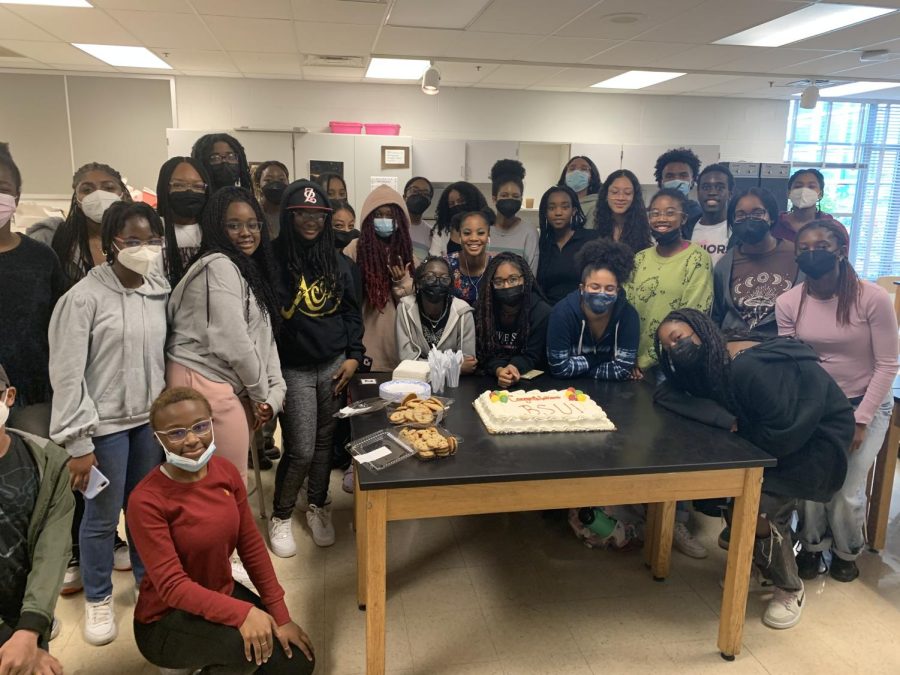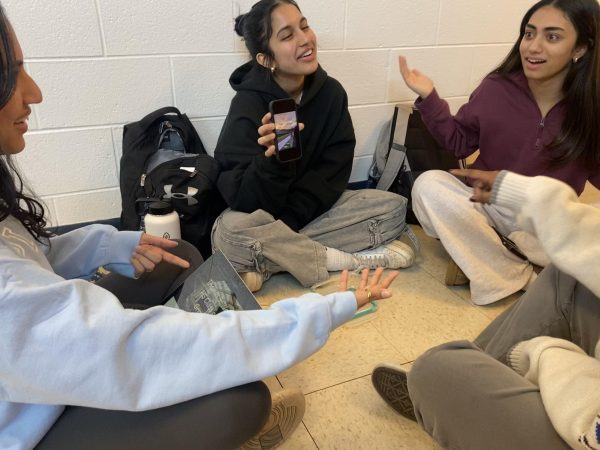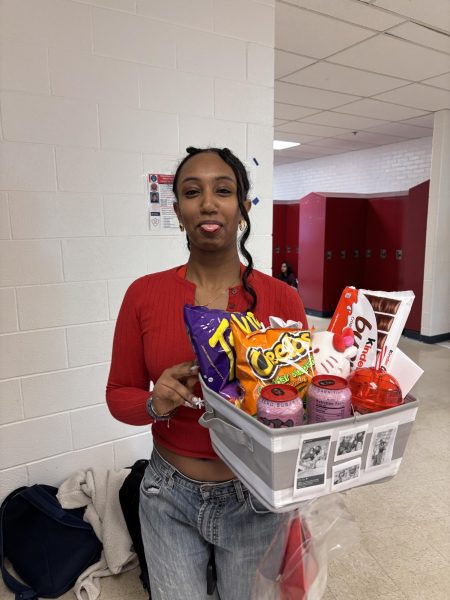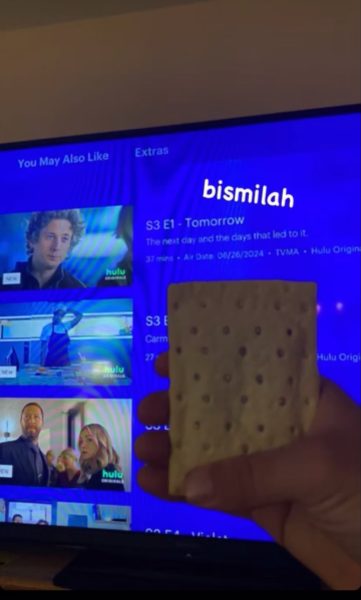Following Black History Month, students reflect on how racism has impacted their daily lives
The Black Student Union at a club meeting discusses their unique experiences at school.
During this year’s Black History Month Program presented by the Black Student Union – to honor African-American historical contributions and accomplishments, Black role models and ancestors, and heritage of all Black Americans — an interview compilation video aired of our students explaining their experiences as a person of color at a primarily white school. Here are some of their stories:
Anonymous:
“As a Black student at Wootton, sometimes I feel like I have to academically over-perform or otherwise fall into a stereotype. There have been times when I decided not to drop a class that was too demanding for my schedule because I didn’t want anyone to assume that I couldn’t handle it. On top of that, I feel out of place in these classes because I will often not know anyone and be the only Black student in the class. I avoid asking my teachers for support because I don’t want it to seem like I need or want special treatment. Sharing my feelings with students who have had similar experiences has helped a bit, but I think that the achievement gap needs to be strongly addressed by administration in order to really make a difference.”
Senior Ted Otengo:
“Being one of the few Black students in my classes is a unique experience because there’s always a sense of responsibility, especially with being a leader in BSU, because I represent the Black students in our school and in general. I have to make sure I’m not in bad situations or messing up. I feel like some teachers are more lenient with the white students they have in class and less lenient with students of school.
In the cafeteria, I’ve heard a group of students shouting the n-word. The security guards were there and didn’t care enough to tell them to stop. I feel like the staff should do a better job in making sure that people can’t just say whatever they want at any time. I also think that students could help microaggressions like this by educating themselves about them and biases that they have and ignore; people say offensive things that they don’t know are offensive. There should be more education about racism so students of color feel less ostracized and more comfortable in school and with their peers. Students are being attacked in a certain way because of these microaggressions. People should be ready to call out their friends when they say these things and hold them accountable.”
Senior Charlotte Rollins:
“All the way up until basically this year I’ve felt pressure to look and act a certain way due to my race at school. For example, feeling the need to straighten my hair to fit in with my peers. Additionally, at Wootton I’ve witnessed multiple people using the n-word, have heard from other people that they’ve heard non-Black people using the word in places like the hallway, and I have even had someone from school use it toward me.”
Senior Micah Fosset:
“Coming to Wootton I had not considered racism to be an issue in my personal life as it never was more than just immature jokes in my head. But within a matter of a few months I was demeaned because of my race more times than I can recall. One memory and I can strongly recall is going down to sit at a computer in one of my classes and coming back to my screen saying go back to your country you Mexican ni***r. I could not think of anything to do but laugh thinking, ‘wow this is what my ancestors went through.’ As if it never happened I exited the document and went on for my day thinking this would set the tone for my next four years at Wootton. Coming from quite an international upbringing, I was not used to the division between students during lunch. I noticed that those who hung out with the Black students were often disrespected when participating in class and finally acknowledging this inspired me to take up roles in leadership and show these same kids that just because we may be quite different from you does not mean we’re insignificant to you. With this decision came its own sacrifices, but knowing that I had a chance of stopping the same mistreatment of kids of the future that look like me let me know that it was worth the hardships.”
Junior Landon Townsend:
“Generally my experience at Wootton has been pretty good, but there are definitely downsides, like being the only Black person in an AP class, club or activity. Especially with a sub or teacher I don’t know very well, I feel like I have to go the extra mile to prove myself and get on equal footing – cognitively, academically and intellectually- with my peers, then I can go above and beyond. I notice microaggressions, for example, I have an A in a class but the teacher checks on me the most. In the mornings before class, I sat in the cafeteria and overheard a group of white kids bragging about who says the n-word the most. I went to an interest meeting for a club and there were a number of people at the door and I asked a girl if it was the club interest meeting, she said yes and passively asked me if I was sure I was in the right place. Any change starts with teachers, whether they know it or not they control the academic environment, if teachers let behaviors go unchecked then students see no repercussions and won’t know it’s wrong or unacceptable.”
Throughout the video and statements from students, repeated themes arose; highlighting feelings of isolation, having to prove themselves to their white peers and teachers, and unchecked racism appearing in their day-to-day lives at school. As individuals and a community, we must make a conscious effort to create a safe, welcoming and inclusive learning environment for our peers and our friends.
Your donation will support the student journalists of Thomas S. Wootton High School. Your contribution will allow us to purchase equipment and cover our annual website hosting costs.
Ellie Reiter is a 2022 graduate.







![Junior Grace Song rewatches the trailer for Anora. Promoted as "A Love Story from Sean Baker," it is the eighth feature film under Baker's belt starring Mikey Madison in the titular role. "[Anora] accurately represents women overseen and easily taken advantage of. It emotionally enticed me. The ending is so good," Song said.](https://woottoncommonsense.com/wp-content/uploads/2024/11/Rc5RQTdjtUFtyT7IyQe1rSxkpOTc6NoksY8jtoop-e1732201365565-600x450.jpg)